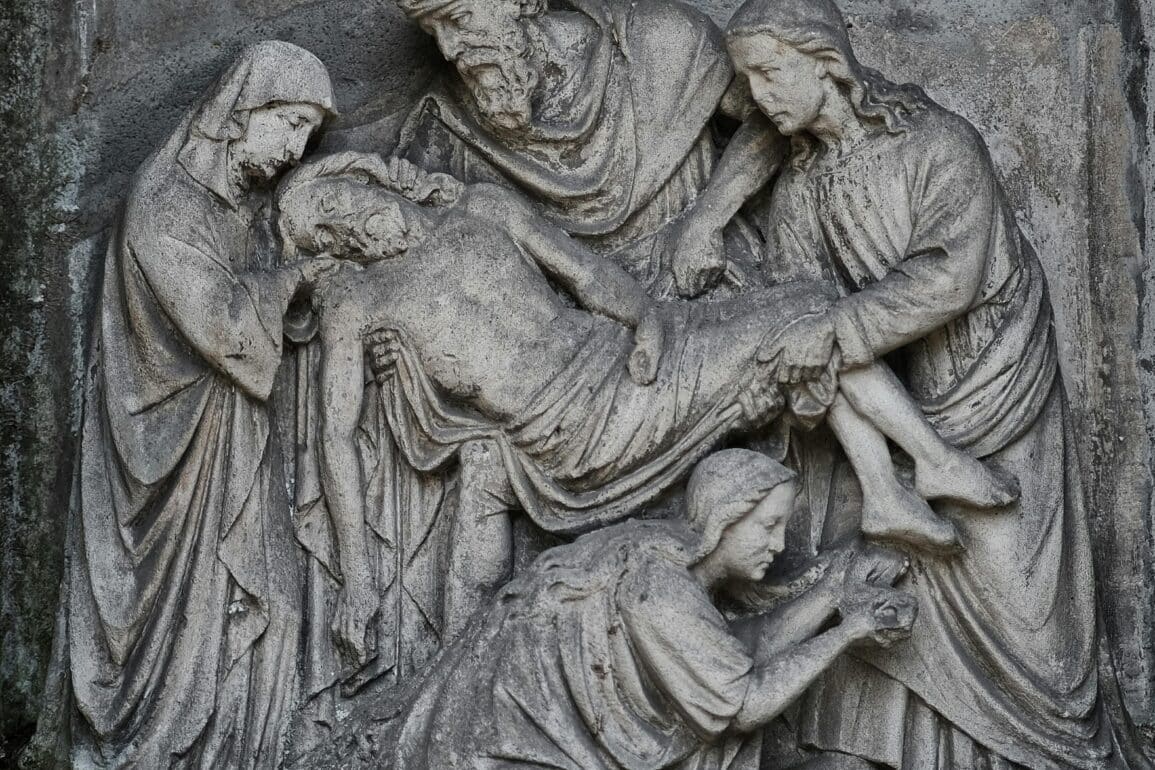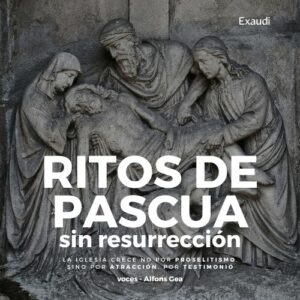In many places, it is customary, for Easter, to give the little ones a sweet that contains a natural or chocolate egg. The pastries, the Easter cakes, or the decorated eggs.
The egg is a symbol of the resurrection in many cultures. On the outside it seems lifeless, there is no movement, and, on the other hand, inside it beats the chick that will break the shell and come to life.
Being part of the rite, the characters that make it up are usually the baptismal godparents, in charge of ensuring the religious education of the godchild, the boy or girl, the parents, and another family that will participate in the festive gathering.
Along with the characters that are part of the rite, the symbol itself, that is, the candy, the other component of the Easter festival is the specific day that Christians celebrate the resurrection. It’s not just any day, it has to be Easter Day. In Catalonia, Easter Monday. So much so that that day takes the name of the cake that is given as a gift. It’s “monkey” day.
The name “monkey” is not known for sure where it comes from, it seems to be from Arabic: Not in vain were they inventors of fantastic pastries.
The ritual establishes that the godparents go to the godson’s house to bring him the “monkey”. And the whole family, at home or in the country, celebrates Easter.
With the decrease in baptisms, it should happen that the rites derived from Easter would also decrease. That is to say, there were few cute ones that were given as gifts. But the opposite happens, year after year they are increasing. The large stores offer them and the few remaining artisan bakeries show off with ingenious designs, following the interest of the children’s themes of the moment.
The ratio of Easter cakes sold to that of children baptized is astonishing. According to pastry chefs, they have sold around eight hundred thousand monkeys in Catalonia, not counting those made at home or those sold in large stores, many of them made outside the region. This means that practically all homes celebrate the day of the monkey. On the other hand, the percentage of baptized children is declining in some populations, reaching practically only one fifth of those born. In Catalonia, adding all those born in the last ten years, they reach five hundred thousand. This means that the majority of children who receive their Easter cake are not baptized.
The other important character in this ritual is the “godfather” who assumes the responsibility of helping in the Christian education of the godson. In the unbaptized, this figure would be non-existent, but this is not usually the case. The godfather becomes an honorary title that the parents grant without having mediated a sacrament, but that year after year the monkey will give to her “godson.”
In my parish, on Easter night, we joyfully celebrate the sacraments of the Christian initiation of two adults. One of them, in preparation for the baptism, introduced us to his lifelong “godfather.” It was difficult for me to understand that he would have been the godfather of an unbaptized person. But delving deeper into the catechesis, we discovered that the “godfather” was not baptized either, therefore, he lost that title. It was an opportunity to begin a new catechumenate process with the supposed godfather.
We told Roger, our catechumen, that when he was a child he had been bothered by his “godfather” but that on Easter night he was going to receive the greatest gift, the resurrected Jesus Christ. And that in some way they were announcing the Easter bonuses that he had received throughout his more than twenty years.
It is seen, therefore, that rites, even religious ones, not only do not decline, but are increasing.
The nuncio in Spain, Bernardito Auza, in the proclamation that inaugurated Holy Week in Ponferrada (Bishopric of Astorga) stated that Spain has a Catholic culture rather than a Catholic religion.
Apparently, no matter how much positivism or scientific spirit in the modern world, we need something as irrational as a ritual without content. What is true is that we seek joy, by giving, by receiving, by sharing. And the monkey makes all that easier. The Holy Father, precisely on this Easter Monday, at Regina Caeli, told us: “The resurrection of Jesus is not just wonderful news or the happy ending of a story, but something that changes our lives completely and forever.” It is the victory of life over death, of hope over discouragement. His presence fills everything with light, “He is the source of a joy that never runs out. Let us seek him in the Eucharist, in his forgiveness, in prayer and in the charity lived. And let us not forget that the joy of Jesus also grows in another way, by bearing witness to it. Because joy, when shared, increases”.
Now, a rite without content is like a false symbol, which does not say what it means. Let’s imagine giving each other a gift, when that gift means nothing, because there is no love. It becomes a false sign, or at least something empty, meaningless.
I remember the words of Pope Francis on his apostolic trip to Morocco, which he made in 2019. In it, he made reference to the significance of minority Christians. Without being in an Islamic country, in Europe, despite Catholic rites, we are already a minority. He reminded us of the importance of being significant. In the case that concerns us, the significance would be to give content to the rites so that they are not something empty. He told us in the cathedral of Rabat in his speech to the consecrated people: We remember Benedict XVI: “The Church grows not by proselytism, but by attraction, by testimony.” They do not go through proselytism, which always leads to a dead end, but through our way of being with Jesus and with others. Therefore, the problem is not being few, but rather being insignificant, becoming a salt that no longer has the flavor of the Gospel – this is the problem – or a light that no longer illuminates (cf. Mt 5:13-15).
RITES OF
EASTER
without resurrection
THE CHURCH GROWS NOT BY PROSELYTISM
BUT BY ATTRACTION, BY TESTIMONY
Voices – Alfons Gea











